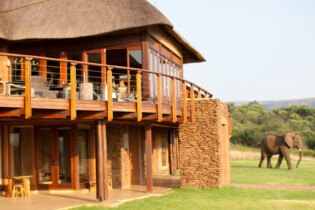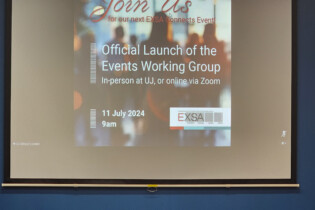In a world increasingly shaped by technology and data, the hospitality sector finds itself at a pivotal moment of change. Embracing digital advancements and harnessing the power of data has become crucial for hotels seeking to offer unparalleled guest experiences and remain competitive.
Digitalising the guest experience
The digital realm has transformed how guests interact with hotels, from making a booking to providing post-stay feedback.

“My involvement with the Signature Lux hotel in South Africa, where we introduced self-service check-in kiosks, shed light on the specific cultural aspects of the South African market. Although digitisation is vital, retaining a personal touch remains essential within our hospitable culture,” says Cleo Johnson, founder and CEO of Nuecleo.
“At Nuecleo, we identified a need for cost-effective digital solutions for smaller properties. This led to the creation of a hotel chatbot, facilitating effortless communication through WhatsApp, Telegram, Facebook, and Instagram Messenger. This chatbot enables direct room service payments, personalises the guest experience, and even cuts down on the printing costs for room directories. It’s a tool that empowers smaller venues to enhance their engagement and revenue, making the advantages of digitalisation accessible to everyone.”
Harnessing data for revenue growth
Data has become a valuable asset in hospitality, offering insights into guest behaviours, preferences, and booking trends. Utilising data analytics and predictive modelling, hotels can fine-tune pricing, tailor marketing efforts more effectively, and boost revenue. A recent campaign for Valentine’s Day at a hotel in Tanzania showcased their success with data; leveraging insights from a Christmas campaign to optimise their social media marketing budget, they achieved a sell-out in mere days.
Consider the transformative potential of data: a repeat guest arrives for their third stay. Drawing on data from their previous visits, the property management system notes their preference for a specific wine. Rather than just completing the transaction, you surprise them with a complimentary bottle in their room or during their meal, turning a routine check-in into an unforgettable experience that cements guest loyalty.
Integrating departments for a unified strategy
Organisational silos can obstruct collaboration and overlook opportunities. Transitioning from front-of-house roles to sales, marketing, and revenue management underscored the importance of uniting various departments. “In my recent Nuecleo Café podcast, revenue managers shared that all hotel staff contribute to revenue. A collaborative approach to strategy development, engaging different departments in decision-making, ensures a comprehensive strategy,” says Cleo.
To dismantle silos, involving ground-level staff in strategy meetings is crucial for a well-rounded view. A data-led approach is best, moving beyond assumptions and subjectivity. By refining processes, optimising workflows, and capturing key data, hotels can better meet guest expectations and enhance revenue.
Success in the ever-evolving hospitality industry hinges on the adoption of digital innovation, effective use of data, and enhanced collaboration. By digitalising guest experiences, leveraging data-driven insights, and fostering inter-departmental cooperation, hotels can set themselves up for enduring success.







